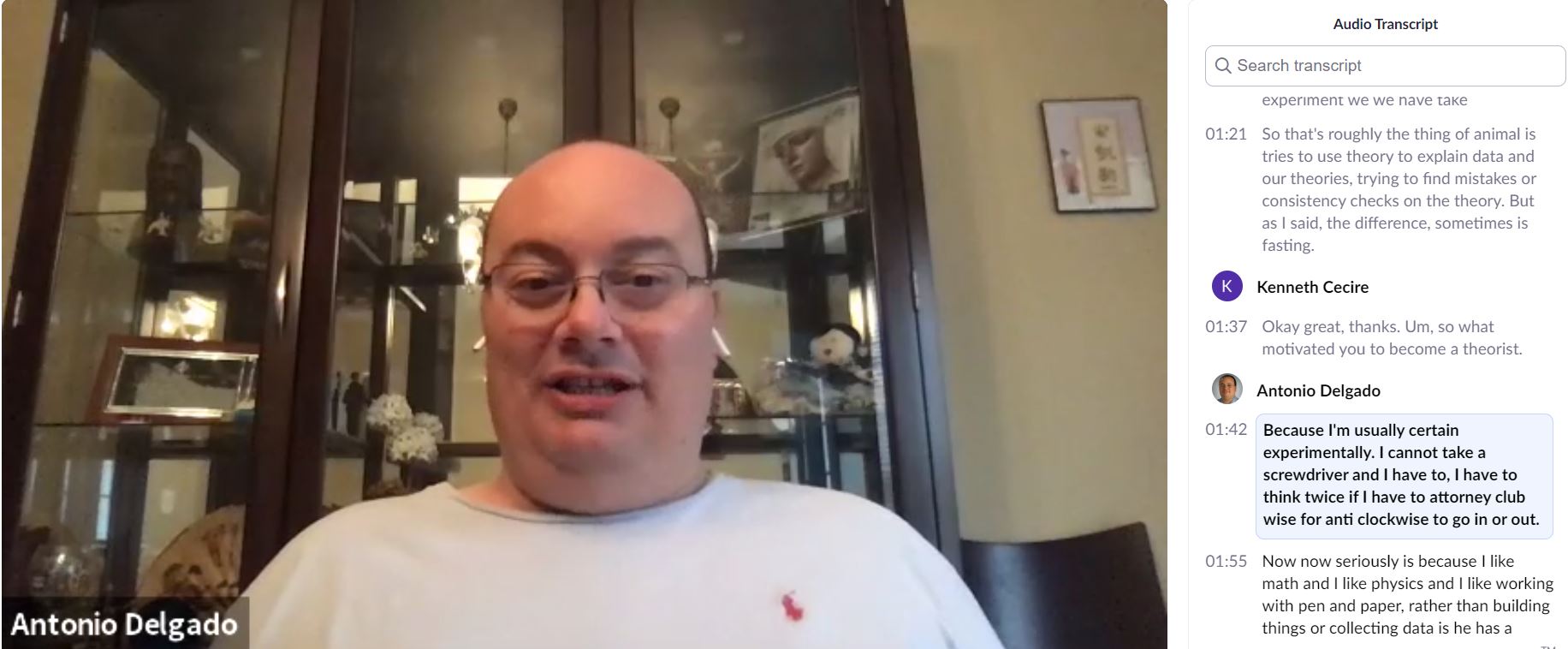Friday Flyer - May 15, 2020

Spotlight on Theory
In QuarkNet, we spend a lot of time on particle experiments at the LHC, the Fermilab neutrino program, and beyond. What drives much of our experimentation and what enables us to understand the results? Theory.
What theorists do (thanks, Fermilab News) is a bit like the chicken-and-egg question. When a theorist works on a problem with our understanding of physics or an unexplained result, she or he formulates ideas, calculations, and simulations that can result in a concrete prediction. Higgs and Englert and their team worked on the question of particle masses in the Standard Model and predicted a particle. When, after 50 years of work by theorists and experimenters alike, that particle was discovered in the LHC, theorists began to work on why and how the Higgs behaves as it does. Right now, we have a beautiful theory called supersymmetry that theorists have developed to explain beyond-the-standard-model physics, including dark matter. Experimenters are looking for the signal of a supersymmetric particle. If they find it, theorists will need to explain its characteristics and any of its behavior we do not understand, even as experimenters look for more supersymmetric particles. If they do not find it, theorists will need to formulate alternative theories. Of course, some already are.
So, what comes first? The prediction or the problem? Both and neither. The work of theory never ends.
Learn more by watching our chat with Antonio Delgado, a mentor for both the Notre Dame and Virtual QuarkNet Center. We know Antonio well; he is 100% certified theorist.

News from QuarkNet Central
What's two? QW2 is two! We have now had two QuarkNet Wednesday Webinars (QW2) to provide online interactive presentations on topics in particle and contemporary physics. We've heard from Rick Dower of the QuarkNet Boston Group on the History of Neutrinos and Pedro Machado of Fermilab on Science at Fermilab. Missed them? Recordings are available on the QW2 page, along with the schedule of remaining webinars. Next up: Gabe Perdue of Fermilab on Quantum Computing.
QuarkNet is putting together a course in particle physics what we have tentatively named the QuarkNet Summer Session for Teachers (SST). As the title implies, this is professional development for QuarkNet teachers. Stay tuned for details.
Reminder: Mentors and teachers at each QuarkNet center will decide whether and how they can meet this summer. Also, centers may want us to retool QuarkNet National Workshops such as Neutrino Data Workshop for remote online participation. If your center needs to change plans, postpone the workshop, or move it online, or has any request that might help, please let Spencer, Shane, or Ken know. We can work it out. We expect to send an e-mail with more details to mentors next week.
Thinking about the AAPT 2020 Summer Meeting in Grand Rapids? Well, it has has been changed to a virtual meeting. For more information about this recent announcement, check out the AAPT 2020 Summer Meeting website.

Physics Experiment Roundup
The pandemic has slowed down but not stopped particle physicists. One set of responses, reported in CERN Bulletin, employs new creativity combating COVID-19. CMS physicists, meanwhile, are working on their own particle X-file and ATLAS reports on using machine learning in the search for new particles. Meanwhile, SuperKEKB and Belle II are up and running in Japan; here is the Belle II luminosity report.

Resources
ParticleBites is a nice online resource with the tag line, "the high-energy physics reader's digest." That sounds good—and is. (Hat tip to Bob Baker) Outside the particle box, learn from Physics Today about celestial mechanics and ice ages and read Fermilab News tips for cyber hygiene in our always-online times.
A little more on theory: the dated-but-classic old video Universe on a Scratchpad.
And this just in: Fermilab has just launched a new website all about DUNE and LBNF!

Just for Fun
Enjoy this subtle, moving song by a Canadian music teacher about education in these interesting times. (Hat tip to Marge Bardeen)
Wait! Physicists do music too. Here is ATLAS physicist, IPPOG co-Chair and QuarkNet Advisory Board member Steve Goldfarb with the Canettes Blues Band. (Hat tip to Deborah Roudebush)
That is all.
QuarkNet Staff:
Mark Adams: adams@fnal.gov
Ken Cecire: kcecire@nd.edu
Spencer Pasero: spasero@fnal.gov
Shane Wood: swood5@nd.edu

